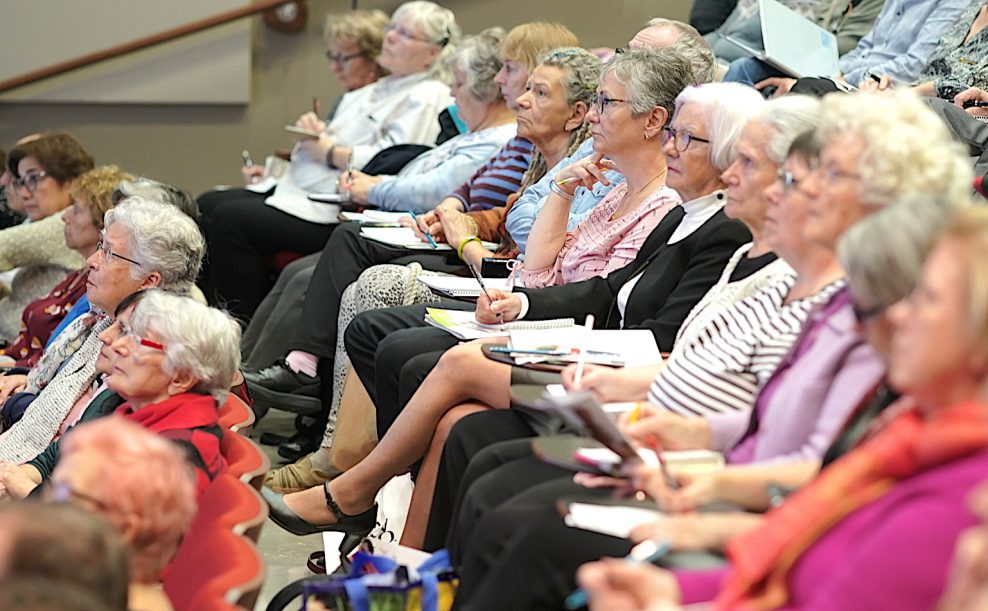There are over 564,000 Canadians living with dementia, and a further 25,000 diagnosed each year. Fortunately, the number of Canadians who are proactively managing their health and working to reduce their risk of developing dementia is also growing.
On September 30, 2018 the Canadian Consortium on Neurodegeneration in Aging (CCNA), in partnership with the Alzheimer Society of Canada, and the Canadian Institutes of Health Research, hosted Dementia Risk Reduction: What the research tells us. An inaugural event for the CCNA, participants heard evidence-based advice about how they can build cognitive resilience, make good dietary choices by following the Brain Health Food Guide, and the critical link between exercise and cognition. The event drew a full crowd of 157 attendees.
“It’s important that dementia research is shared with the public, and in a way that is accessible and action-oriented. We [the CCNA – and our partners the ASC and CIHR] are encouraged by the turnout at this event; it shows us that there is a hunger for this kind of knowledge and a need to keep sharing it broadly.” Sacha Nadeau, CCNA Knowledge Translation and Exchange Manager
Attendees commented on the value of having discussions take place openly and without the stigma so often associated with the disease. Attendees also had an opportunity to speak with exhibitors, view posters developed for them by the CCNA’s research trainees, and have brain-healthy snacks to continue discussions.
“I’m here hopeful, in a positive space. As a researcher, daughter, and mother I’m on a quest and willing to participate in and collaborate to find a treatment for my grandchildren, or even my children. I believe it’s possible. I’m doing it and am pursuing this quest with passion and compassion.” – Dr. Nancy Brassard
In terms of structure, a panel discussion was held mid-day, featuring experts on dementia risk reduction. Each researcher delivered a brief presentation on the topic of nutrition, cognitive reserve, or exercise. An additional 30 minutes were reserved for audience questions and meaningful testimonials from people living with dementia – voices that are vital to improving our understanding of what it means to live with dementia in Canada.
Are you interested in learning more? We invite you to click to view an archived video of this event (available in both French and English) and we encourage you to share it broadly.

